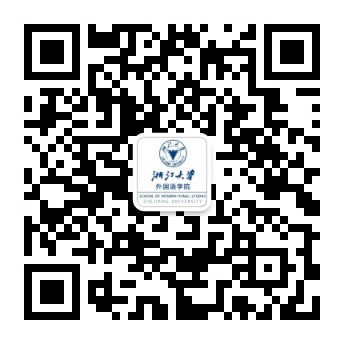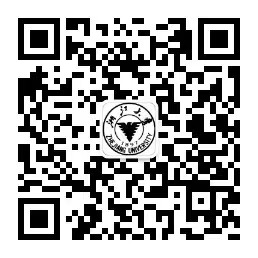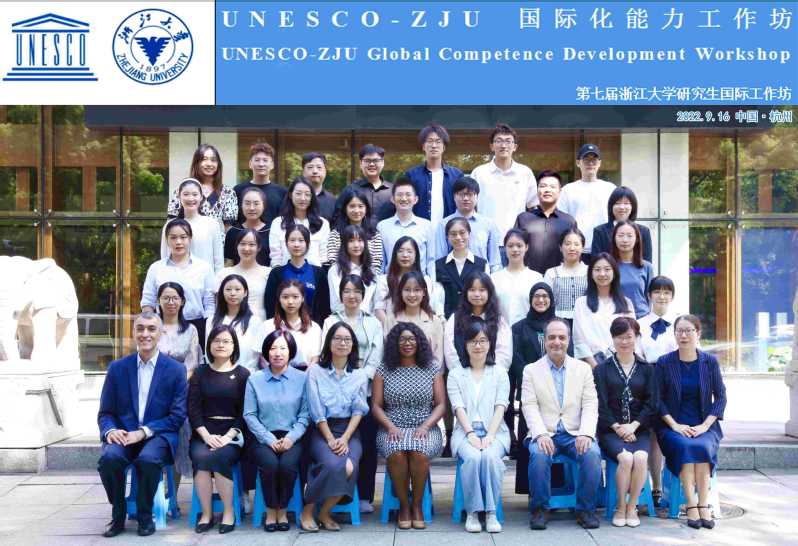
At 9 a.m. on September 16th, 2022, the UNESCO-ZJU Workshop for Global Competence, jointly hosted by Zhejiang University and the United Nations Educational, Scientific and Cultural Organization (UNESCO), and funded by the Graduate School of Zhejiang University, embraced its opening ceremony in Zijingang International Hotel. The workshop includes three modules: the new scenario and dynamics of international cooperation in education, science, culture and information, theories and methodology of international project management, and career development in international organizations for junior professionals. In various forms such as classroom training, cloud travel, field study, dialogue with international organizations officials, and project planning cases, the program helps young students gain a deeper understanding of the operation and rules of international organizations such as UNESCO, learn theories and methodology of international project management, enhance their awareness and strengthen their ability to participate in global governance, cultivate their leadership and creativity, and allow them to show their intelligence and ambition on the international stage. Ni Jiani, Deputy Director of Graduate Academic Affairs Office, Graduate School, Zhejiang University, Shahbaz Khan, Director of the UNESCO Office in Beijing, and Zhao Jia, Vice Dean of School of International Studies, Zhejiang University, delivered an opening speech respectively. They reviewed the previous cooperation and expressed their sincere wish for the successful holding of the ZJU-UNESCO workshop.
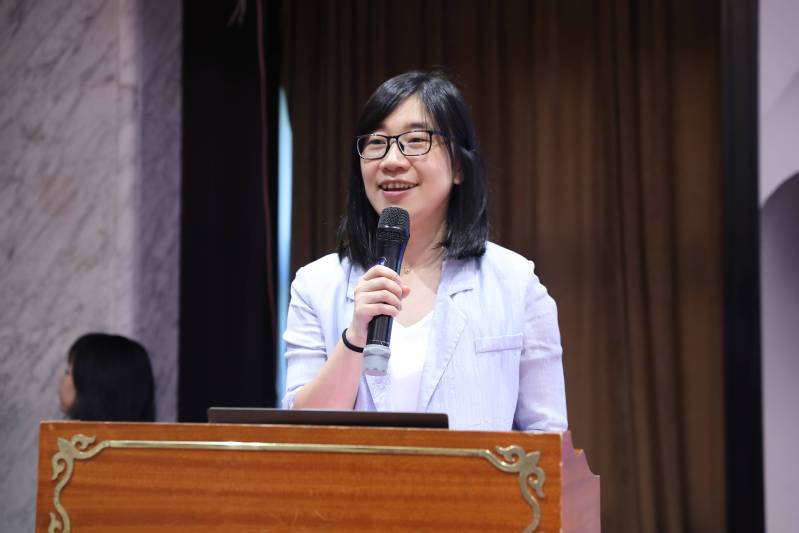
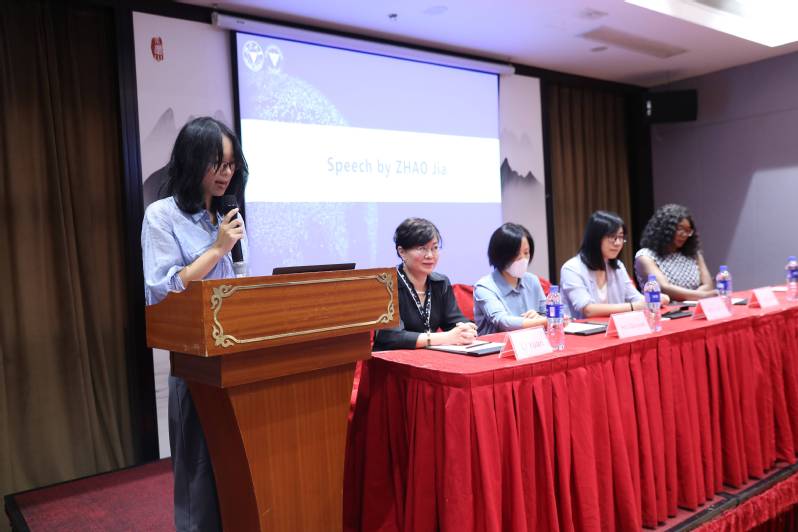
Understanding Work Philosophy, Developing Professionalism
After the opening ceremony, Dr. Charity Tinofirei, Head of Operations, UNESCO Beijing Cluster Office, gave a keynote speech on the importance of Diversity, Equity, and Inclusion (DEI) in the global business model of the UN system. She emphasized that the focus of DEI in the workplace allows everyone to have full and effective participation and interaction at work or in society and can promote understanding and communication among different cultures. In addition, Professionalism and Integrity are also important qualities for employees of international organizations. Professionalism means not only demonstrating the highest standards of competence, but also treating colleagues equally and engaging in teamwork positively. Integrity means reflecting the values of the IO in the activities and conduct, and making decisions without consideration for personal gains. The students exchanged views with Dr. Charity Tinofirei on topics such as global competence and the specific requirements for internships in international organizations.
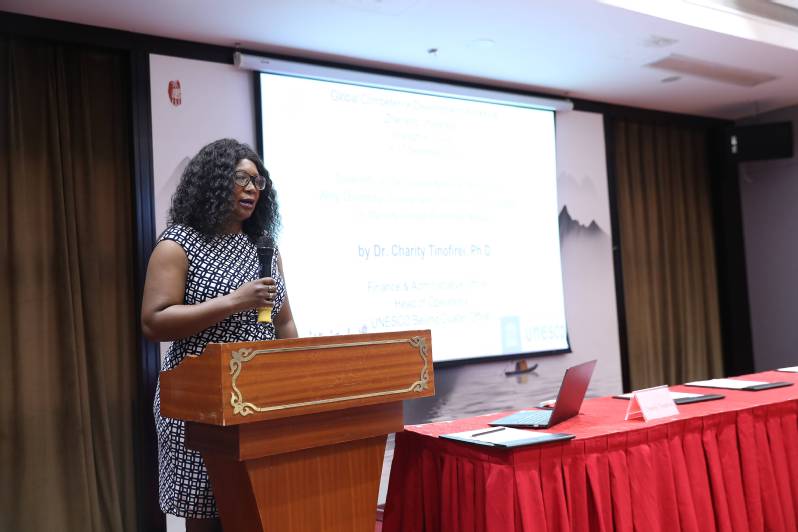
Learning Cultural Conventions, Valuing the Role of Culture
On the afternoon of September 16th, the second lecture, delivered by UNESCO official Dr. Duong Bich Hanh, was held in Room 118 in the East Teaching Building 6. Focusing on the role of culture in the sustainable development, Dr. Duong reviewed the background, objectives, actions, and development of UNESCO’s five main cultural conventions, and visually demonstrated the impact of COVID-19 on global cultural industry (e.g., museums, intangible cultural heritage, etc.) through statistics. As pointed out by Dr. Hanh, although the COVID-19 pandemic widened the gap of inequalities and caused the economic retrogression, it advanced the innovation of technologies around the world. UNESCO is devoted to protecting cultural heritage, enhancing cultural creativity, mobilizing culture for sustainable development, and initiating people-oriented, practical, and inclusive cultural policies. In the end, Dr. Hanh introduced her personal experience and answered the questions concerning the influence of climate change on cultural development, the evaluation of the protecting value of folk custom, etc. Her comprehensive lecture broadened the horizons of workshop members and received warm responses.
Communicating with Officials, Gaining Insights about UNESCO
On the morning of September 17th, the third lecture was held in Zijingang International Hotel, and Prof. Shahbaz Khan, Director of the UNESCO Office in Beijing, and Dr. Charity Tinofirei, Head of Operations in UNESCO Beijing Cluster office served as the keynote speakers. Prof. Khan introduced the overall operation of UNESCO and its Beijing Office, explained the United Nations Sustainable Development Cooperation Framework in detail, and recognized the critical role played by China as a Member State of UNESCO in the fields of education, science, culture and information sharing. Meanwhile, under the background of climate change which triggered migration, natural disasters, water pollution, etc., Prof. Khan emphasized the essential mission of younger generation. Then, Dr. Tinofirei made a face-to-face conversation with workshop members. She shared her work experience in different organizations under the UN system, patiently answered the questions concerning how to acquire skills and experience in UN systems, how to apply for UN job in accordance with personal interests, and so forth.
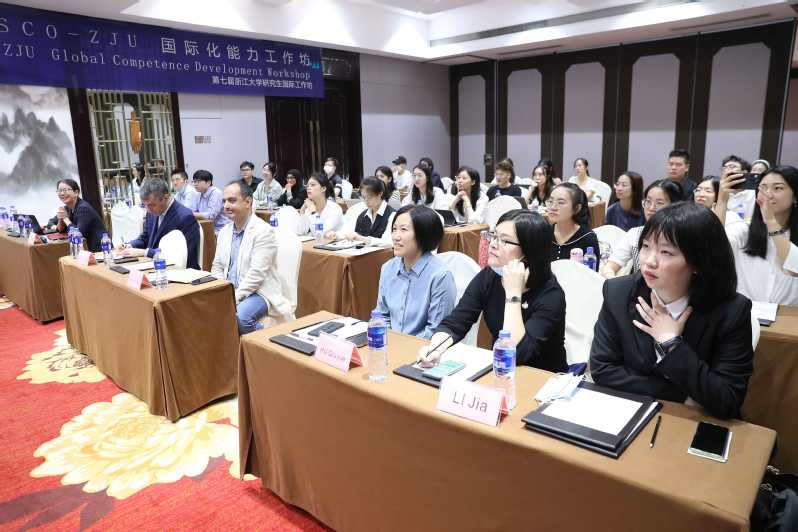
Visiting Liangzhu Ruins, Appreciating Chinese Civilization
On the afternoon of September 17th, all workshop members conducted a field study at the Archaeological Ruins of Liangzhu City and Liangzhu Museum. Liangzhu City has witnessed the splendid Chinese civilization with 5000 years, and on July 6th, 2019, Liangzhu Archaeological Ruins was officially inscribed on the UNESCO World Heritage List. The Palace of Mojiao Mountain and Fanshan Royal Tombs demonstrate the life traces of Liangzhu ancestors. Rice and sika deer, two main features in this scenic spot, not only present Liangzhu’s civilization of rice planting, but also reflect the harmonious coexistence between human and nature. Project coordinator XU Xueying, who was one of the translators of the exhibition at the Archaeological Ruins of Liangzhu City, vividly shared her experiences and insights from her translation efforts. Afterwards, the workshop members visited the three major exhibition at the Liangzhu Museum to learn more about Liangzhu culture, especially its archaeological achievements and its unique contribution to the development of Chinese civilization characterized by diversity and unity. Standing in Liangzhu, the intersection of history and future, all workshop members had a profound understanding of the splendid Chinese civilization.
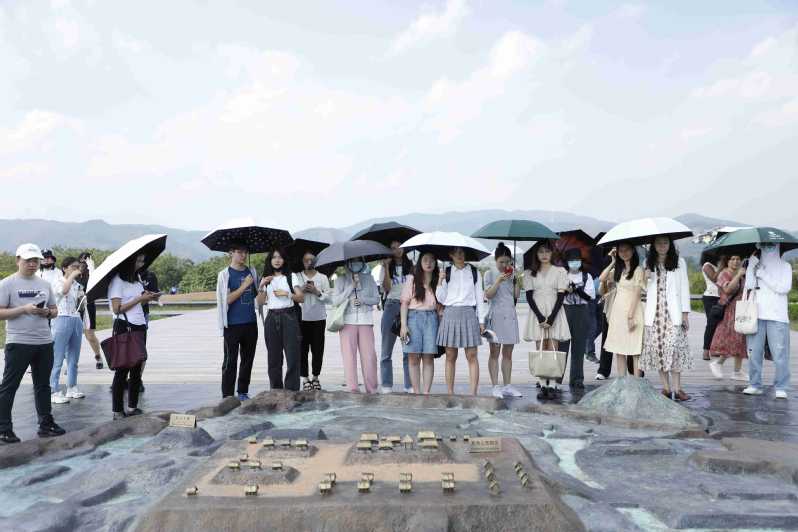
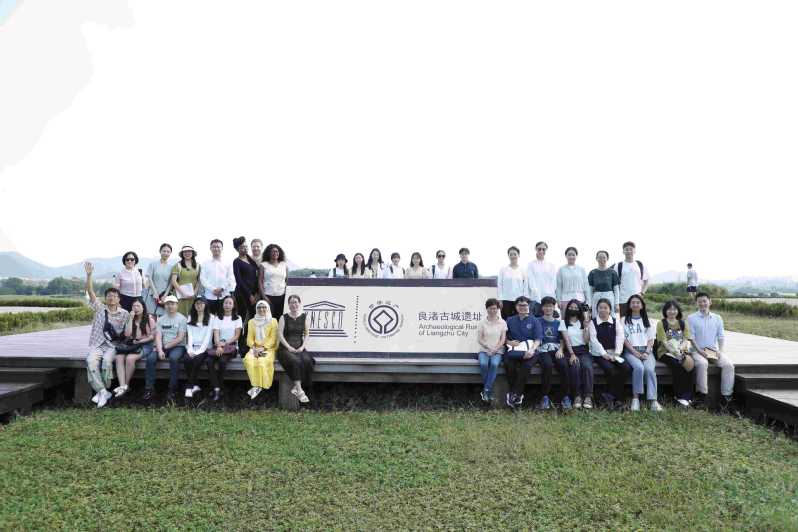
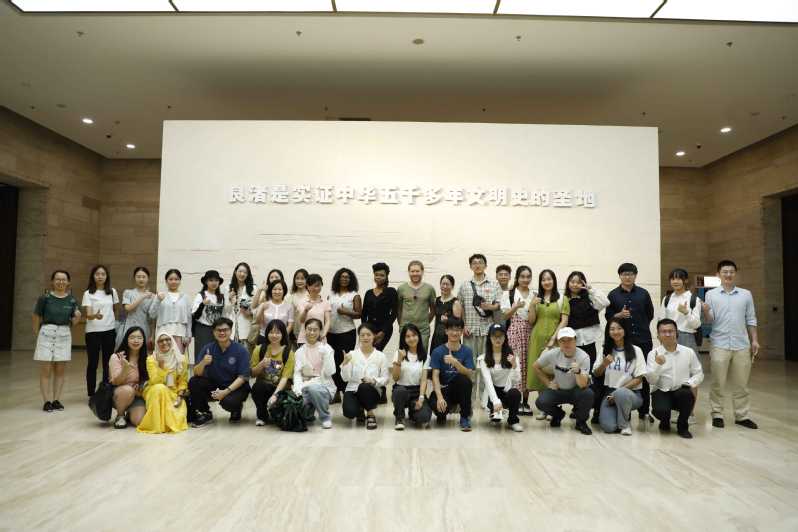
The first-week schedule of ZJU-UNESCO workshop integrated theory and practice, provided opportunities for ideas sharing, and promoted mutual learning from diverse cultures. All workshop members have gained fruitful knowledge and unforgettable experience.


